Visakhapatnam, with its long coastline and vibrant lifestyle, is a city where life often revolves around the sea. People walk on the beach in the mornings, enjoy the salty air in the evenings, and live in close touch with the water. For someone using a prosthetic, this seaside environment brings both joy and challenge. Salt, sand, and moisture can affect devices if they are not cared for properly.
Thankfully, prosthetic clinics in Visakhapatnam are not only offering advanced devices but also guiding patients on how to care for them in coastal conditions. Along with this, the city now has a growing number of centers where people can find the right support, fittings, and follow-up care.
This blog will explore practical tips for managing prosthetics near the sea and provide a detailed directory of clinics in Visakhapatnam. It is written to help people and families feel confident, informed, and ready to live fully in a city that never stays still.
Visakhapatnam Prosthetics: Seaside Care Tips and Clinic Directory
Why the Coastline Environment is Different
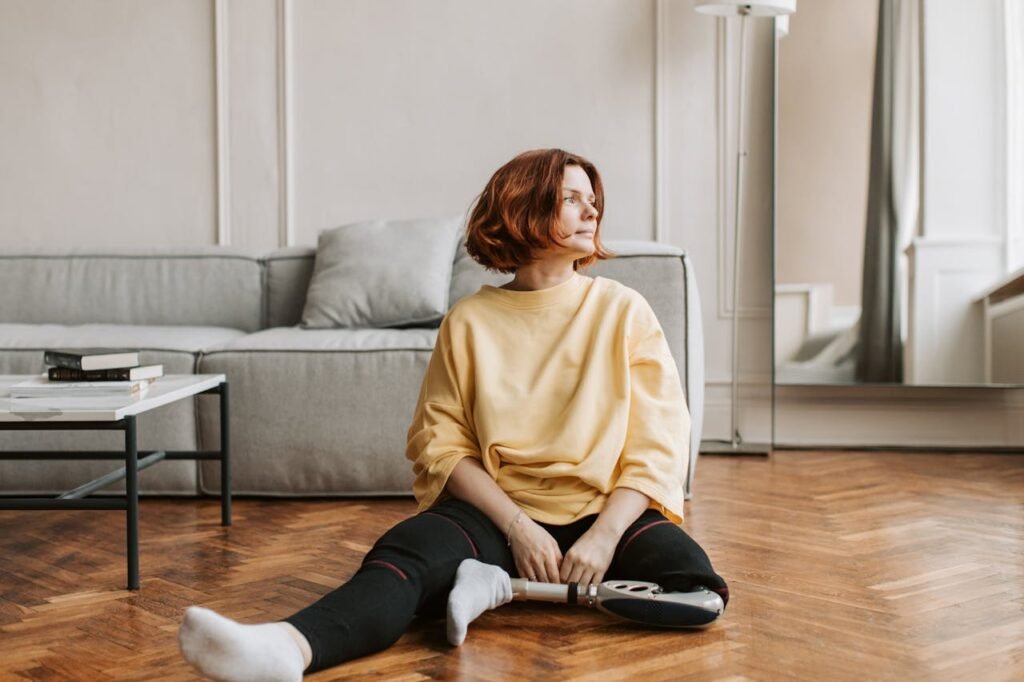
Living in a coastal city like Visakhapatnam has its unique charm. The sound of waves, the breeze, and the lifestyle shaped by the sea bring a special rhythm to daily life. But for prosthetic users, this environment can sometimes pose extra challenges.
Moisture, salt air, and sand particles are all part of the seaside experience. While harmless to most people, these elements can affect the function and durability of prosthetic devices if not managed carefully.
The Effect of Salt and Humidity
Salt in the air may settle on prosthetic joints, causing them to feel stiff over time. High humidity can also increase the risk of corrosion in certain metal parts. For electronic or battery-powered prosthetics, such as bionic hands, this environment requires even more caution.
The key is not to avoid the sea but to understand how it interacts with prosthetics. With simple daily habits, these risks can be reduced significantly, allowing users to enjoy Visakhapatnam’s coastal life without worry.
Sand and Prosthetics
Sand is another common concern. Fine grains can slip into joints, hinges, or sockets. Over time, this may cause scratches or reduced movement. For people who enjoy walks on the beach, it is important to know how to protect the device.
Protective covers and regular cleaning can prevent sand from becoming a long-term issue. Many prosthetic clinics in Visakhapatnam provide custom covers that are light and easy to wear, making beach outings safe and enjoyable.
Daily Care Tips for Coastal Prosthetic Users
Cleaning After Outdoor Activities
After spending time at the beach or near the sea, it is helpful to clean the prosthetic gently. Wiping it with a dry cloth removes moisture, while a soft brush can clear out small grains of sand.
For more advanced devices, clinics recommend using specific cleaning sprays that do not harm sensitive parts. Patients are usually guided during follow-ups on which products are safe for their prosthetic type.
Managing Sweat in Humid Weather
Visakhapatnam’s humid climate often causes extra sweating, especially for people wearing prosthetic sockets. Excess moisture inside the socket can lead to skin irritation.
To manage this, specialists advise wearing breathable liners and changing them regularly. Some clinics also suggest using mild, skin-friendly powders to keep the area dry and comfortable.
Storing Prosthetics Safely
When not in use, prosthetics should be stored in a dry, cool place. In coastal cities, leaving them exposed near open windows may cause moisture buildup. Using a storage bag with silica gel packets can help absorb excess humidity.
This simple habit extends the lifespan of the device and ensures it stays ready for daily use.
Special Care for Bionic Prosthetics
Protecting Electronics
Bionic prosthetics, like battery-powered hands, need extra attention in Visakhapatnam’s seaside climate. Salt and moisture can interfere with sensors and wiring if not protected properly.
Clinics advise patients to avoid exposing these devices directly to sea spray or wet sand. If exposure does happen, wiping them immediately and allowing them to dry completely is crucial.
Charging and Maintenance
Humidity can sometimes affect charging ports and connectors. To prevent damage, users are encouraged to charge devices in dry rooms and avoid plugging them in immediately after being outdoors.
Regular servicing at local clinics ensures that sensitive parts are inspected and maintained properly. Many clinics in Visakhapatnam now schedule reminders for patients to bring their bionic devices for routine checkups.
Using Protective Gear
Special waterproof covers are available for people who wish to continue beachside walks or light activities. These covers act as a barrier, keeping moisture and sand away from the prosthetic. While not meant for swimming, they provide a good balance for casual seaside outings.
Skin Care for Prosthetic Users in Coastal Weather
Preventing Skin Irritation
Moisture and heat can sometimes cause rashes or irritation where the prosthetic touches the skin. Patients in Visakhapatnam are often advised to clean the skin gently with mild soap after wearing the device for long hours.
Applying a light moisturizer, free from strong chemicals, can also help. This keeps the skin healthy and reduces friction inside the socket.
Checking for Redness or Sores
Regular checks are important. If redness or small sores are noticed, it is best to take a break and consult a prosthetist. Ignoring these signs may lead to bigger issues.
Clinics in the city often provide quick consultations for such problems, ensuring that users do not face long gaps in care.
Choosing the Right Liners
Different liners suit different climates. In humid Visakhapatnam, breathable and quick-drying liners are often the best choice. These reduce sweating and make the prosthetic more comfortable to wear for long hours.
Patients are guided during their fitting sessions on which liners match both their device and the local weather conditions.
Lifestyle Adjustments for Coastal Living
Walking on Beaches
Walking on beaches is a joy for many in Visakhapatnam. Prosthetic users can continue enjoying it with a few adjustments. Wearing a cover, cleaning afterward, and avoiding deep wet sand help keep the device safe.
Prosthetists often encourage patients to try short walks first, gradually increasing distance as they gain confidence.
Swimming and Water Activities
Swimming with a regular prosthetic is not recommended unless it is specifically designed to be waterproof. For those who enjoy swimming, some clinics in Visakhapatnam offer water-resistant prosthetic feet and legs.
These are designed for pool or beach use, though they still require proper cleaning after contact with saltwater. Patients interested in such options can request special fittings during their consultations.
Daily Clothing Choices
Loose, breathable clothing helps in managing prosthetic use in humid weather. Cotton fabrics reduce sweating and keep both skin and device more comfortable.
Patients are often surprised at how small lifestyle changes like clothing choices can make a big difference in comfort.
Prosthetic Clinics in Visakhapatnam
Why a Directory Matters
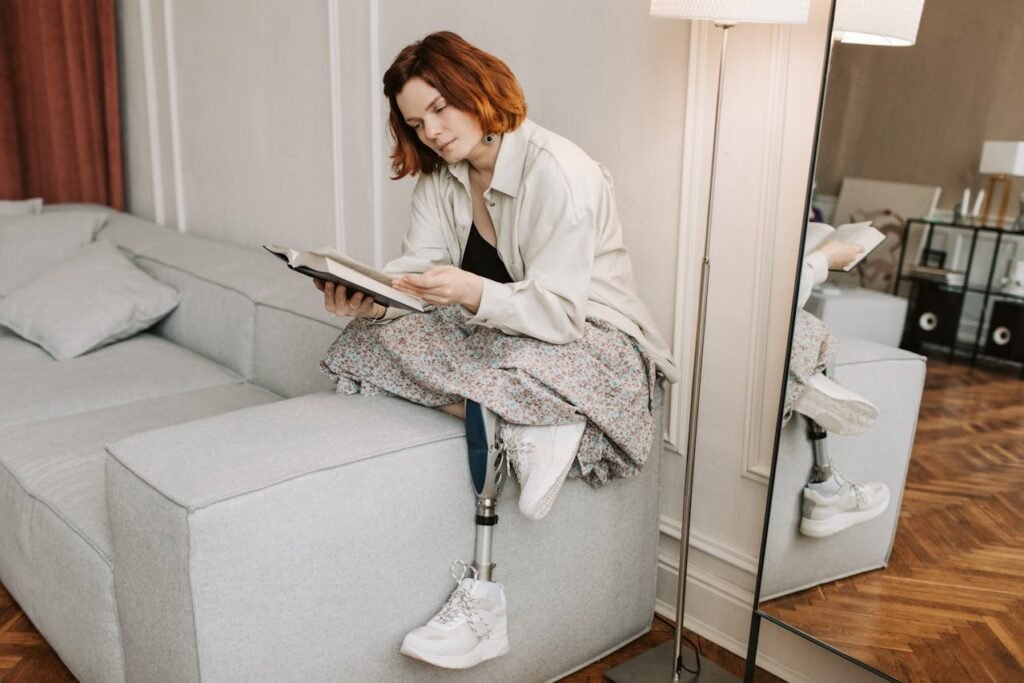
For someone new to prosthetics, the hardest step is often knowing where to go. Visakhapatnam has a growing number of clinics and hospitals that provide prosthetic fittings, training, and rehabilitation. But without clear guidance, families may feel lost.
A directory helps by bringing together the different centers available. It shows patients what each clinic offers and how to contact them. More importantly, it gives them confidence that help is close to home.
Different Types of Clinics
Not all prosthetic clinics in Visakhapatnam are the same. Some focus on mechanical limbs for everyday use, while others specialize in advanced bionic hands. A few also combine prosthetic services with orthotics, helping people with braces and support devices.
Large hospitals usually have prosthetic departments, while independent centers often provide specialized care. Understanding the difference helps families make better choices based on their needs.
Major Prosthetic Providers in Visakhapatnam
Hospital-Based Prosthetic Units
Some of the city’s leading hospitals have prosthetic and orthotic departments. These units often provide comprehensive services, from initial assessments to fittings and follow-up care.
Being part of a hospital also means patients can receive other medical support if required. For people with multiple health needs, these units are often the best choice.
Independent Prosthetic Centers
In addition to hospitals, Visakhapatnam also has independent prosthetic centers. These are dedicated solely to prosthetics and orthotics, offering personalized services and flexible appointment options.
Such centers often focus more closely on training and long-term rehabilitation. Many patients prefer them because they provide more time and attention during fittings.
NGO-Supported Services
Some clinics in Visakhapatnam run in partnership with NGOs. These centers aim to make prosthetics affordable or even free for low-income families. They are usually supported by charitable groups or government schemes.
For people with limited financial means, these centers play a critical role in restoring mobility and independence.
What Services Do Clinics Offer?
Same-Day Assessments
Like in other progressive Indian cities, many prosthetic clinics in Visakhapatnam now provide same-day assessments. Patients can walk in and get evaluated without waiting weeks for results.
This fast approach reduces stress for families and ensures that the recovery process begins immediately.
Fittings and Customization
Every prosthetic is unique. Clinics take detailed measurements, create molds, and adjust fittings until they are comfortable. In Visakhapatnam, local technicians often customize sockets and liners to suit the coastal climate, helping reduce skin irritation.
For advanced bionic devices, customization includes programming grip modes and testing sensor responses with the patient.
Rehabilitation and Training
Prosthetic use does not stop at fitting. Clinics provide rehabilitation programs where patients learn to walk, lift, type, or carry out daily tasks with their new device.
Rehabilitation specialists in Visakhapatnam work closely with patients and families to build confidence. Many even run group sessions, where users inspire and motivate one another.
Follow-Up and Repairs
Wear and tear is normal, especially in a humid, seaside city. Clinics offer follow-up appointments to adjust, repair, or upgrade prosthetics. Some also provide emergency services for patients who face sudden device problems.
Regular follow-ups ensure that prosthetics remain part of everyday life without interruption.
How to Choose the Right Clinic
Location and Accessibility
For families living in different parts of Visakhapatnam, location matters. Clinics near major roads or bus stops are often preferred because they are easier to reach. Patients from nearby towns also look for centers close to railway stations or main highways.
Accessibility is important not just for fittings but for frequent follow-ups, which are essential for long-term success.
Type of Prosthetic Required
Not every clinic provides all types of prosthetics. A patient needing a mechanical leg may have different options than someone looking for a myoelectric bionic hand. Before choosing, it is helpful to ask what devices the clinic specializes in.
Some families even visit two or three centers before making a decision. This comparison ensures that they select the best match for their needs.
Cost and Payment Options
Affordability is one of the biggest concerns for families in Visakhapatnam. Clinics that provide cost estimators or EMI options are highly valued. Patients should ask about all charges upfront, including fittings, training, and follow-ups.
Some clinics also help families apply for insurance or government assistance schemes, making advanced prosthetics more accessible.
Patient Support and Environment
A prosthetic journey is not just technical—it is emotional. Families should look for clinics where staff are patient, encouraging, and supportive. A welcoming environment can make the process less intimidating for first-time users.
Talking to other patients or reading testimonials can also give insight into the clinic’s approach.
Real-Life Patient Experiences in Visakhapatnam
A Fisherman’s Story
Ravi, a fisherman from Vizag’s coastal area, lost his leg in an accident. He was worried he could never return to the shore again. At a local prosthetic clinic, he received a mechanical leg suited for walking on uneven ground.
With training, he learned to balance on sandy surfaces. Today, while he no longer goes deep into the sea, he manages the business side of his fishing work and proudly walks along the shore each morning.
A Student’s Comeback
Anjali, a college student, lost her hand in a bike accident. Her family found a prosthetic center in Visakhapatnam that specialized in bionic devices. With a fitted bionic hand, she learned to type, write, and even paint again.
Her story shows how the right clinic can make a huge difference in restoring not just function but also passion and creativity.
A Senior Citizen’s New Freedom
Satyam, a retired teacher, struggled with mobility after amputation. His children took him to a hospital-based prosthetic unit in the city. With a comfortable everyday prosthetic foot, he regained the ability to walk short distances.
Now he spends his evenings walking along the beach, something he thought he had lost forever.
Challenges of Prosthetic Care in Visakhapatnam
The Impact of Coastal Weather
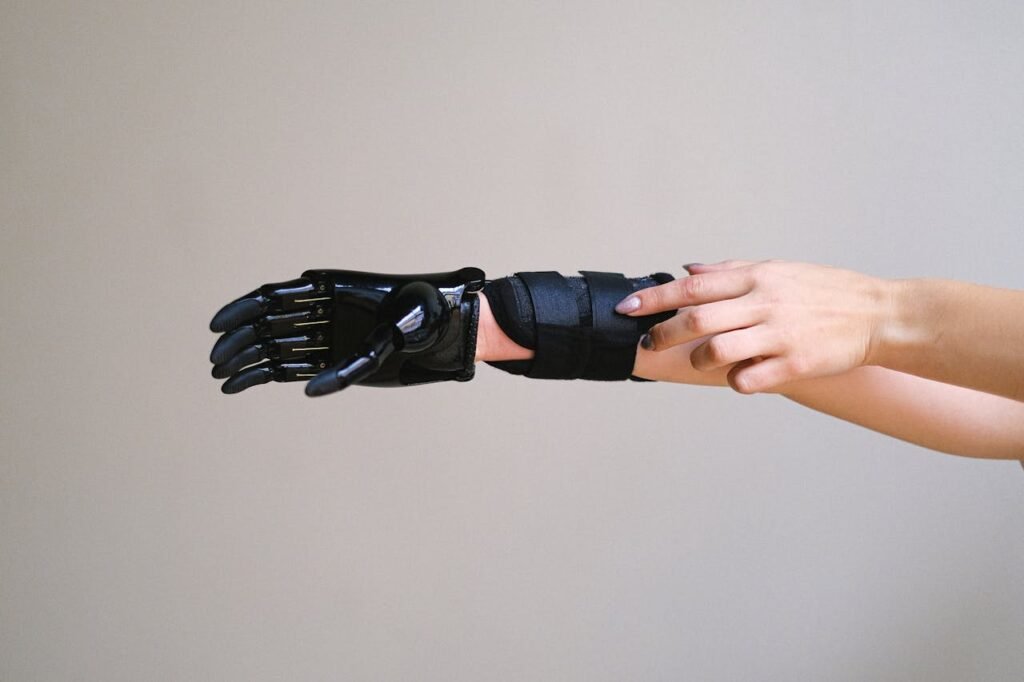
Visakhapatnam’s weather is humid for most of the year. The combination of moisture, salt air, and heat can test the durability of prosthetics. Even simple mechanical devices need extra attention to stay in good condition.
Patients often notice changes faster here compared to inland cities. Small issues like stiffness in joints or skin irritation can become common if care is not taken regularly.
Sand and Outdoor Living
The city’s beaches are its pride, but sand can be troublesome for prosthetics. Fine grains may slip into moving parts or sockets, causing discomfort or affecting smooth movement.
For people who enjoy long walks on the shore or have jobs near sandy areas, this is a constant challenge. Clinics in the city recognize this and provide practical solutions, from protective covers to simple cleaning routines.
The Problem of Sweat
Humidity increases sweating, especially in the socket area. Sweat buildup can irritate the skin, loosen liners, and even cause bad odors. Patients in Visakhapatnam often share this as their biggest discomfort.
Managing sweat is therefore a key part of prosthetic care in coastal cities. Families and clinics work together to find breathable liners, regular hygiene practices, and small lifestyle changes that reduce discomfort.
How Clinics in Visakhapatnam Adapt
Custom Fittings for Coastal Use
Prosthetists in Visakhapatnam understand the climate and lifestyle of their patients. They often recommend materials that are more resistant to corrosion or damage from humidity. For example, stainless steel or coated joints may last longer than standard materials.
For sockets, breathable liners and designs that allow air circulation are preferred. These small changes make prosthetics more comfortable in the city’s environment.
Guidance on Daily Routines
Clinics do more than fit devices—they educate patients. They provide clear routines for cleaning, storing, and maintaining prosthetics in coastal weather. Patients are taught how to wipe off moisture, brush out sand, and check for early signs of wear.
This guidance is practical and tailored to the local environment. It ensures that patients can continue living their coastal lifestyle without worrying about constant damage.
Scheduled Maintenance Programs
Many clinics in Visakhapatnam encourage regular maintenance visits. Instead of waiting for problems to appear, patients are asked to come back every few months for checkups.
This proactive approach catches issues early, saving families from bigger expenses later. It also keeps patients connected to their clinic, building long-term trust and care.
Tactical Tips for Families in Coastal Areas
Wiping and Cleaning
Families are encouraged to help patients develop a habit of cleaning prosthetics after outdoor activities. A simple dry cloth and a small brush can remove most moisture and sand.
This task, when done daily, prevents buildup and keeps the device working smoothly. Families often turn it into a routine, like washing hands after coming home.
Dry Storage
A prosthetic should always be stored in a dry place when not in use. In coastal homes, leaving it near open windows or damp corners can invite moisture. Families can use storage boxes with silica gel or even a dedicated shelf in a dry room.
Some clinics in Visakhapatnam even sell protective storage bags designed for humid conditions.
Skin Care
Families can help by keeping an eye on the patient’s skin. If redness, rashes, or sores appear, quick action prevents further problems. Applying light, fragrance-free moisturizers and keeping the skin clean after prosthetic use are simple but effective steps.
Encouraging the patient to rest the limb when needed also reduces strain.
Involving Children and Caregivers
In many Vizag households, caregiving is a family effort. Children often take pride in helping their parents or grandparents clean prosthetics or prepare storage. This involvement builds understanding and reduces stigma around prosthetic use.
Caregivers, too, are trained during clinic visits. They learn how to assist without making the patient feel dependent. This balance keeps dignity intact while providing necessary support.
Lifestyle Balance in a Seaside City
Enjoying the Beach Safely
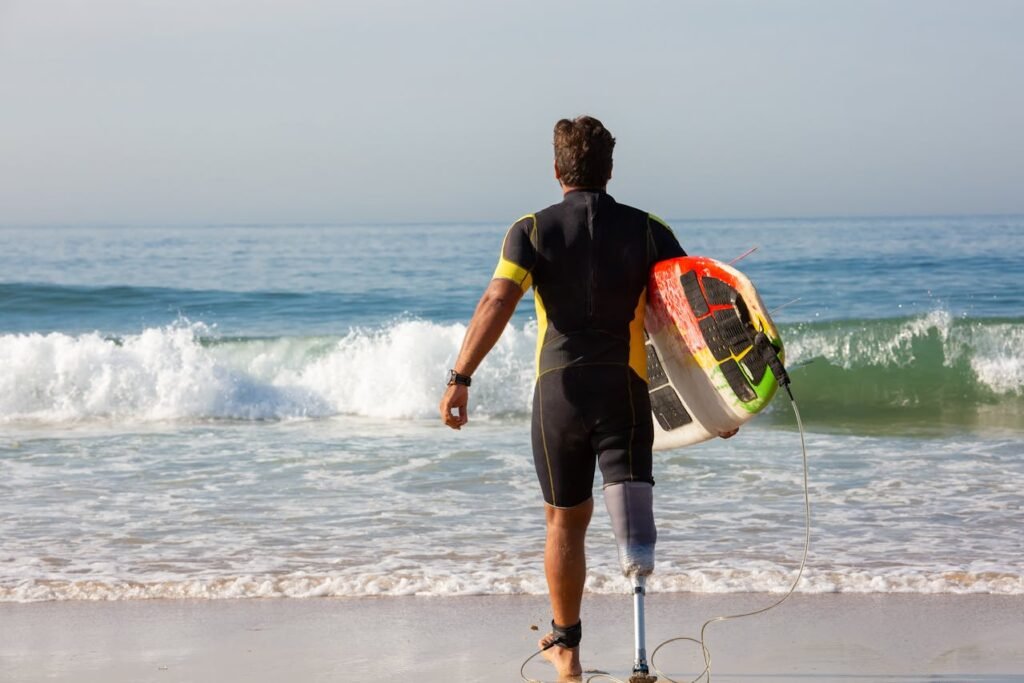
Visakhapatnam residents love their beaches. Prosthetic users can enjoy them too, with a few adjustments. Short walks on firm sand are safer than long walks on soft, wet sand. Using protective covers helps keep sand out of joints.
Patients are often encouraged to carry a small cleaning cloth in their bag, so they can wipe off moisture or sand immediately after the walk.
Festivals and Community Life
The city is known for its vibrant festivals and community gatherings, often held outdoors near the coast. Prosthetic users are encouraged to participate fully, but with awareness. Choosing footwear that supports balance, carrying an extra liner, or taking short breaks during long events makes the experience comfortable.
Clinics often remind patients that prosthetics are made to support life, not limit it. With preparation, cultural and social activities remain enjoyable.
Exercise and Fitness
Staying active is important for prosthetic users. Light exercises, yoga, and physiotherapy are commonly recommended in Visakhapatnam. These activities strengthen muscles and improve balance, making prosthetic use smoother.
For those who want to go further, some clinics even offer guidance on sports prosthetics for running or cycling. The key is gradual progress, starting with small steps and building confidence over time.
Emotional Care in Coastal Prosthetic Use
Dealing with Frustrations
Living by the sea is beautiful, but prosthetic challenges like sweat or sand can sometimes frustrate patients. Families and clinics encourage open conversations, reminding patients that these are common and manageable.
Sharing experiences with other users during group sessions also helps. Knowing that others face the same issues makes the journey feel less lonely.
Encouragement from Community
Visakhapatnam’s close-knit community often provides emotional support. Neighbors, friends, and extended families play a role in encouraging patients to stay active. Community acceptance is vital in reducing stigma and motivating users to live confidently with their prosthetics.
Confidence Through Practice
The more patients practice with their prosthetics, the more natural they feel. Simple daily routines like walking to the market, climbing stairs, or cooking meals rebuild confidence. Over time, the prosthetic becomes not just a device but a trusted part of life.
Real-Life Transformations in Visakhapatnam
A Young Athlete’s Return
Srinivas, a college student and sports enthusiast, lost his leg in a bike accident. He feared he would never run again, especially in a coastal city where sweat and sand seemed like constant hurdles. But with the help of a local clinic, he was fitted with a sports prosthetic designed to handle impact.
Through careful training and regular maintenance, he returned to jogging along RK Beach. His story reminds many young patients that prosthetics are not barriers but bridges back to passion.
A Homemaker’s Independence
Lakshmi, a homemaker in Visakhapatnam, struggled with household work after her amputation. The humid weather made her prosthetic socket uncomfortable, and she often felt discouraged. With support from her clinic, she learned new ways to manage sweat and protect her skin.
Small tips, like using breathable liners and drying the prosthetic after chores, changed her daily life. Today, she moves around her home confidently, managing her family duties without hesitation.
A Retired Worker’s Dignity
Prasad, a retired port worker, had spent most of his life by the sea. After limb loss, he believed his days of seaside walks were over. His children encouraged him to visit a clinic, where he received a sturdy everyday prosthetic.
With regular follow-ups, adjustments, and family support, he now walks to the shore every evening. For him, those walks are not just exercise—they are dignity restored.
How Clinics Build Hope in Visakhapatnam
Personalized Guidance
Every patient comes with unique needs. Clinics in Visakhapatnam make sure to listen first—understanding lifestyles, work, and family roles before recommending a prosthetic. This personal touch ensures that patients receive solutions that fit their real lives, not just generic devices.
Continuous Connection
What makes these clinics effective is not just the first fitting but the ongoing relationship. Patients are invited back for maintenance, counseling, and refresher training. This continuous connection makes prosthetic care in Visakhapatnam sustainable.
Creating Awareness
Clinics also hold awareness camps in nearby coastal villages. They show families that prosthetics are accessible and affordable, breaking the myth that only the wealthy can afford them. This outreach expands hope beyond the city into surrounding communities.
The Complete Prosthetic Journey in Visakhapatnam
From Assessment to Independence
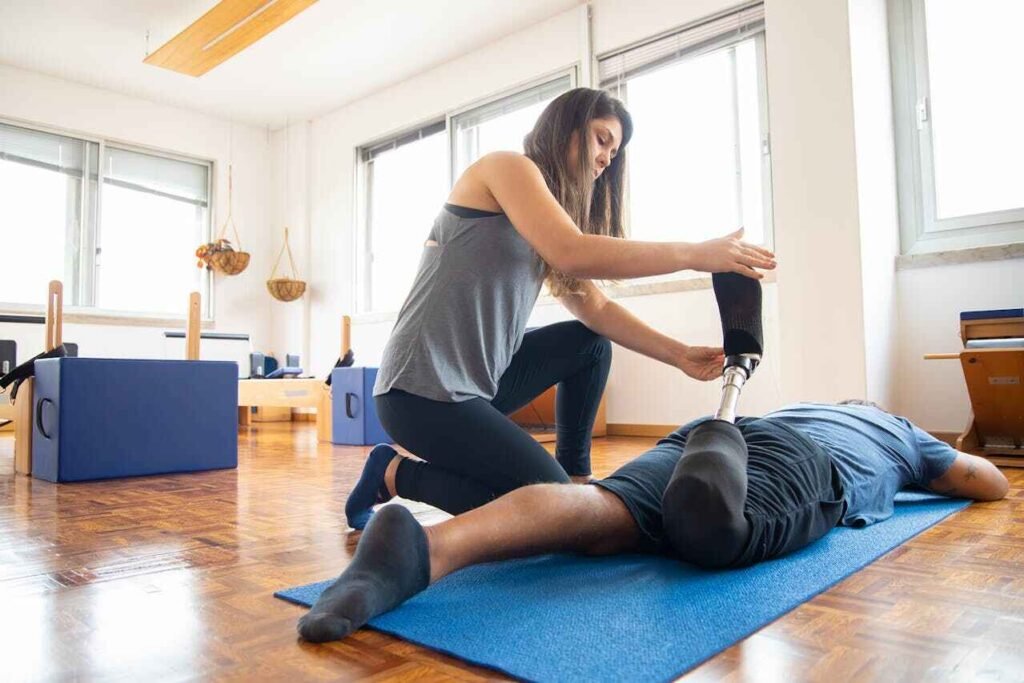
The journey begins with same-day assessments, where patients get answers quickly. Cost estimators help families plan without fear. Fittings and training build practical skills. Follow-ups ensure long-term comfort and durability.
Each stage is designed to give clarity, confidence, and care. By the end of the journey, patients don’t just have a prosthetic—they have independence.
The Family’s Role
Families in Visakhapatnam are partners in this journey. From helping with daily cleaning to providing emotional encouragement, they play a vital role in making prosthetic use successful. Clinics involve families in every step, ensuring that care continues at home.
The Community’s Role
The broader community provides acceptance and motivation. Seeing neighbors, coworkers, and friends support prosthetic users reduces stigma. It also inspires others with limb loss to step forward and seek solutions.
Visakhapatnam as a Model for Coastal Prosthetic Living
Lessons from the City
Visakhapatnam teaches us that prosthetic care is not just about devices—it is about adapting to the local environment. In a seaside city, salt, sand, and humidity require special attention. Clinics here have shown how to customize fittings, teach daily routines, and support families in managing these challenges.
Expanding Access Beyond the City
As these practices grow, smaller towns near Visakhapatnam are also benefiting. Outreach camps and NGO partnerships are spreading awareness across Andhra Pradesh. This expansion ensures that prosthetic care is not limited to urban centers but reaches people everywhere.
A Future of Innovation
With technology advancing, waterproof prosthetics, smart liners, and lightweight materials will soon be available at lower costs. Visakhapatnam is well-placed to lead in testing and adopting these innovations, making coastal prosthetic living even smoother in the future.
Conclusion
Visakhapatnam is proving that prosthetic care can be both practical and compassionate in a seaside city. With challenges like salt, sand, and humidity, the path is not always easy. But with the right clinics, family support, and daily routines, these challenges become manageable.
Patients are not just surviving—they are thriving. Athletes are returning to sports, homemakers are regaining independence, and retirees are walking by the sea with dignity. Each story reflects the strength of people and the care of the clinics that support them.
By combining same-day assessments, cost estimators, personalized fittings, and clear care routines, Visakhapatnam’s clinics are setting a new standard for prosthetic living in India. Families and communities are standing beside patients, proving that no one walks this journey alone.
For anyone living in or near Visakhapatnam, the message is clear: prosthetic care is accessible, adaptable, and ready to give you back your freedom—even in the heart of a seaside city.



